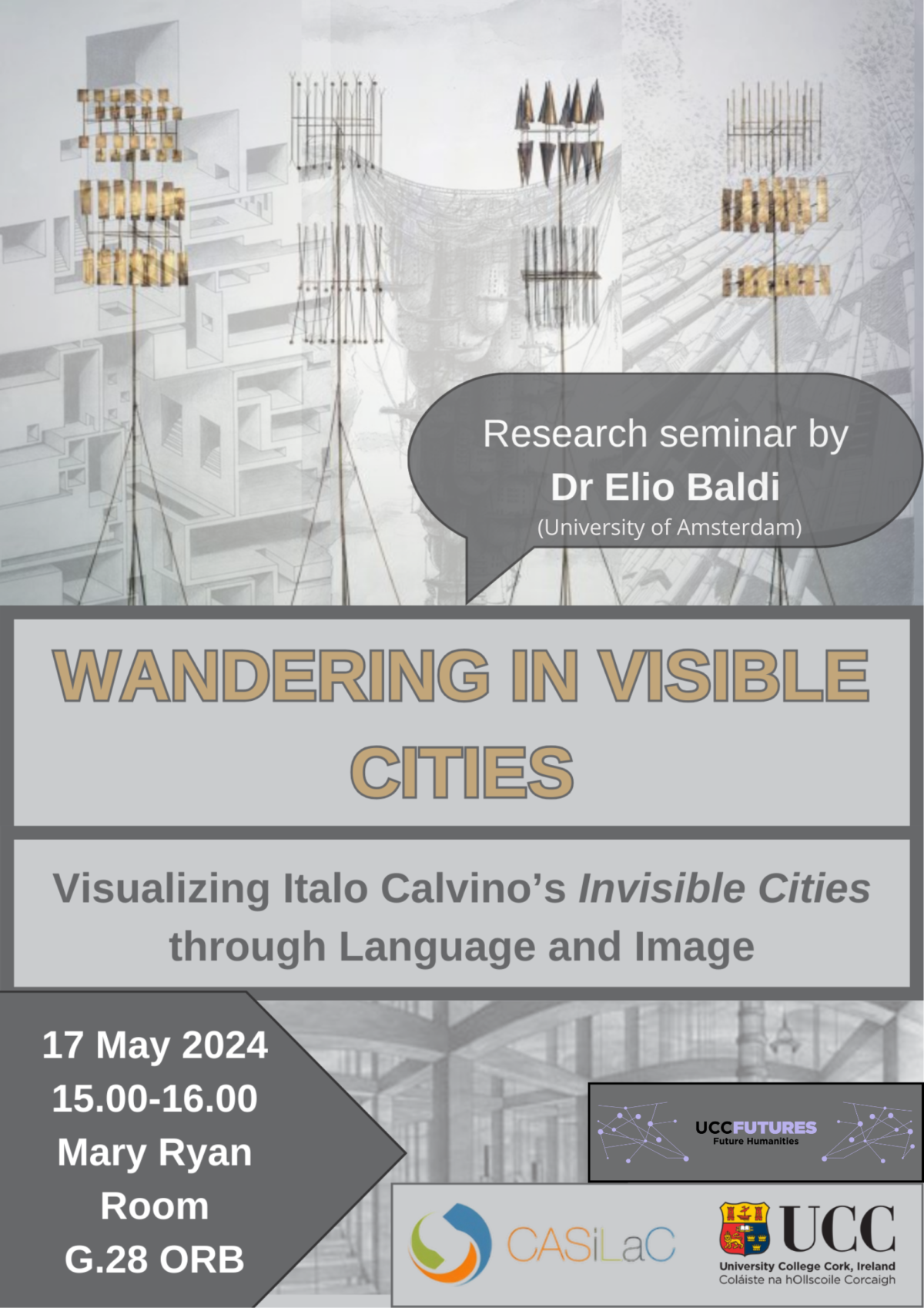Wandering in Visible Cities. Italo Calvino’s Invisible Cities through Language and Image
Research Seminar by Dr Elio Baldi (University of Amsterdam)
17 May 2024
15-16
Mary Ryan Room (ORB G.28)
Co-organised by the
DEPARTMENT OF ITALIAN
The CASiLaC Research Cluster on Rethinking Spatial Humanities:
Italo Calvino’s Invisible Cities (1972) has been a source of inspiration for many writers, architects and artists in Italy and abroad. Precisely the invisibility of the cities stimulates readers to visualise them in various ways. Calvino’s engagement with time and space immerses the reader in exotic cities and modern metropolises, blurring boundaries between the old and the new, the fictive and the real, in a precise, poetic and postmodern manner. While the cities are fictive, the problems described are very recognisable, from pollution to rubbish, from unprecedented growth and urbanization to migration, from the relation between the material of the city and the signs that describe it. In this talk we will analyse how Calvino masterfully uses linguistic structures to reflect city structures and how the structure and the material of his sentences – the rhythms and rhymes, the commas and points – convey the architecture and the space of the cities described, their lightness and their weight, and even the utopian or dystopian nature of a city. Calvino creates an invisible and imaginary space that encourages active engagement and many different attempts (such as on book covers in different countries) to visualise these estranging spaces.
Dr. Elio Attilio Baldi is assistant professor of Modern Languages and Literatures at the University of Amsterdam. He published around 20 articles, books, book chapters and a special issue on Italo Calvino, including a monograph on the reception of his works in Italy, the UK and the US (in 2020) and an edited volume on the translation, paratext and reception of Invisible Cities around the world (in 2023). His publications further address, among other things, (feminist) science fiction, the relation between science and literature, and writers such as Giacomo Leopardi, Fernando Pessoa, Carmelo Bene, Dante, Shakespeare and the Kurdish-Iranian journalist Behrouz Boochani.

